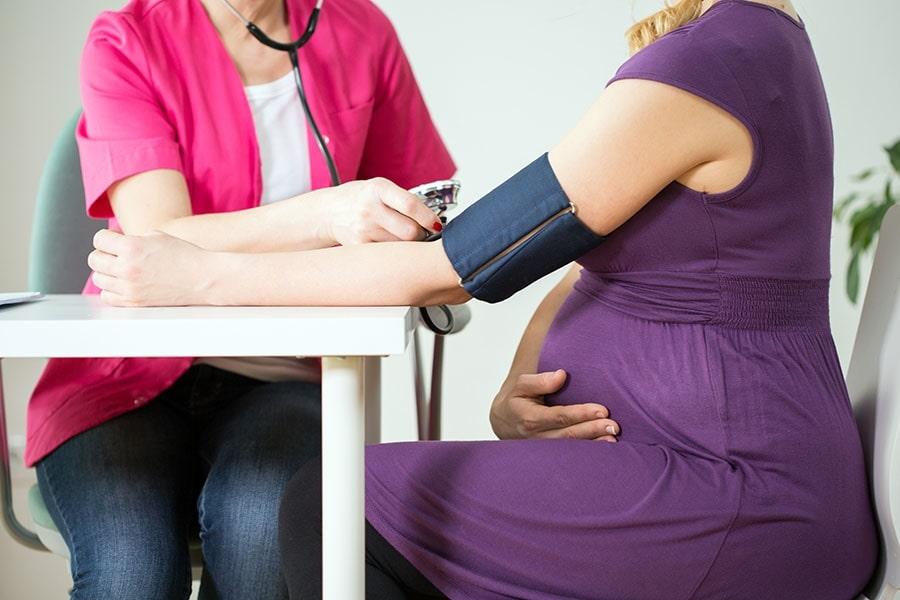Prevention of High Blood Pressure in Pregnancy
High blood pressure in pregnancy is becoming very common and needs to be paid attention to. Having high blood pressure, whether before pregnancy or after pregnancy requires special care. Know the prevention of High blood pressure in pregnancy to avoid any pregnancy complications that accompanies it.
Others also read: 7 Simple Measures To Prevent Hypertension And 4 Ways To Control Hypertension
Others also read: 11 Foods that can Worsen Hypertension
Many also read: Common Plants and Common Diseases they Repel
Others also read: Common health benefits of carrot
Others also read: Retirement syndrome Kills faster than vampire bite
High blood pressure means the force of the blood that pushes against the walls of your arteries is high. If your blood pressure is 140/ 90, you need to keep an eye on it. It means it’s too high.
High blood pressure can affect anyone, but pregnant women are at higher risk. According to the Center for Disease Control and Prevention, there is an increased number of pregnant women being diagnosed with high blood pressure.
Types of High Blood Pressure Pregnant Women Suffer from
1. Gestational hypertension: This type of high blood pressure develops after 20 weeks of gestation
2. Chronic hypertension with preeclampsia which occurs in women with chronic hypertension before gestation.
3. Chronic hypertension that was present before gestation or before 20 weeks of gestation.
4. Preeclampsia. A serious complication of high blood pressure in pregnant women. This is very dangerous and can lead to organ damage or blindness.
When you are suffering from high blood pressure during pregnancy, you need to monitor your blood pressure levels frequently throughout the pregnancy. Ultrasound exams should also be done intermittently to monitor the growth of the foetus. Managing your blood pressure can help you to have a healthy pregnancy and a healthy baby.
High blood pressure during pregnancy puts extra stress on your heart and kidneys which, if not attended to, can cause kidney failure, heart disease and stroke. It can also lead to other complications such as preterm delivery, fetal growth restriction, placenta abruption.
Risk Factors for developing high blood pressure in pregnancy
1. Obesity
2. Decreased physical activity
3. Smoking
4. Diabetes
5. Advanced maternal age
6. First pregnancy
7. Drinking alcohol
Others also read: Medicinal Health Benefits of Moringa & Common Diseases it cures.
Others also read: Foods That Clean Your Urinary Track
Many also read: Signs that You are Eating Too Much Salt
Others also read: 6 Ways To Keep Your Brain Healthy And Active
Others also read: Cassava Madness: Cassava is very Dangerous than you think!
How to Lower or Prevent High Blood Pressure in Pregnancy
1. Limit your salt or sodium food intake: You must keep a check on your sodium intake to keep your blood pressure under control or prevent you from developing it. When you are a hypertensive patient, you need to reduce your salt intake to help your blood pressure to fall or prevent it from rising.
Use herbs and other natural spices to your food to add flavor to it instead of adding a lot of salt to your meal, and also avoid eating processed foods because they are preserved with sodium. Hence, they contain a lot of sodium.
2. Exercise: Pregnant Women who are inactive or do not exercise are at a higher risk of developing high blood pressure than women who are active. Walking is the easiest exercise for pregnant women. Take a walk for about 45 minutes each day and see how your blood pressure will drop to normal.
3. Practice deep breathing: Deep breathing helps to reduce stress and also allows oxygen to cells, which helps to control high blood pressure.
4. Monitor your weight: Monitoring your weight is very necessary in pregnancy, since obesity is a very serious complication for the mother and the unborn baby. Overweight causes high blood pressure in pregnancy
5. Avoid smoking
6. Eat potassium-rich foods.

